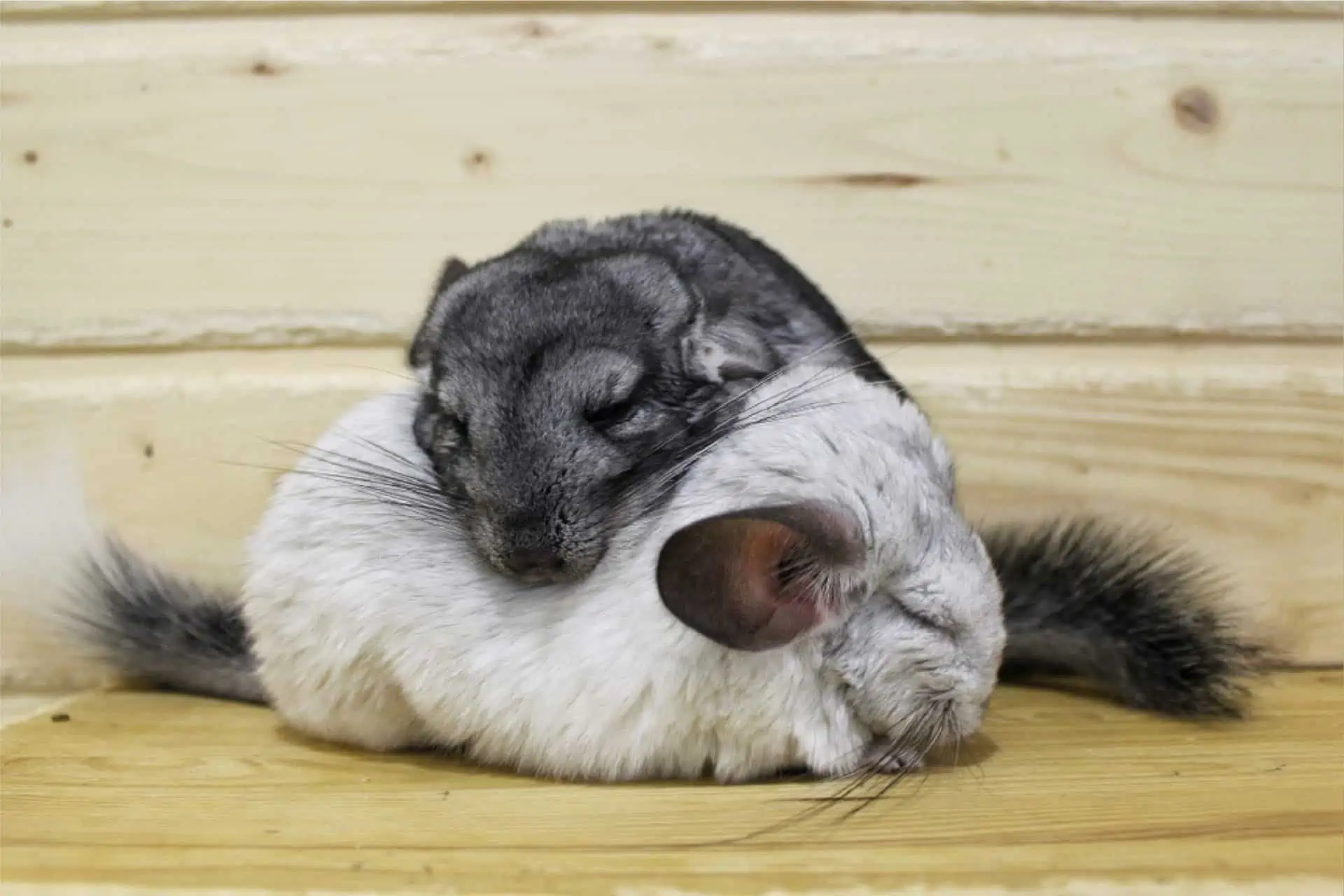Companionship for your chinchillas

Bonding with your chinchillas
First days
The first few days in a new home can be very stressful, so you should give your chinchillas time to get acquainted with their surroundings before you approach them. Remember, that they are naturally more active in the evenings and night. When you feed your chinchillas or change their water, approach their environment slowly and directly. Speak to your chinchillas in a soft, comforting voice, but do not try to touch them. It is best for them to get used to your voice while you’re still across cage bars from each other. With time, your chinchillas will be more comfortable and may come up to the side of the cage to greet you when you enter the room.
Get a chair and sit quietly next to the cage. If your chinchillas come over to see what you are doing, offer them a treat or a food pellet through the bars. Raisins are a favourite treat, but you shouldn’t feed your chinchilla more than one a day (split them in halves to spread it out). Your chinchillas will likely bound away when you move your arm to bring the food up to their level, but curiosity will bring them back to your fingers. Repeat this activity every night at the same time so that your chinchilla will begin to anticipate your visits.
Palm feeding
Handling your chinchillas
Your chinchillas will soon trust you enough to allow you to lift them out of their cage. Place one hand behind them and slip your other hand underneath your chinchilla’s body, supporting their full weight and lifting carefully. Hold your chinchilla securely against your chest or at your shoulder so they can look out behind you.
Never grab your chinchillas' tail or a piece of it may break off in your hand. This is one of your chinchilla’s natural defence mechanisms. Your chinchillas will also release clumps of fur if scared or handled too roughly. If your chinchillas are running around, do not chase them but let them calm down and try to slowly approach them slowly and scoop them up in your hands.
Quick tip

Excel Chinchilla Nuggets with Mint
Did you know?
Our Burgess Excel Range








Do you need more advice?
To help you find the right food for your pet have a look at our product range.
You can get in touch with our customer care team who will respond in 3-5 working days. Our dedicated team of pet experts will help you make the right choice.
If you should have any concerns about the health of your pet, always consult a vet.















